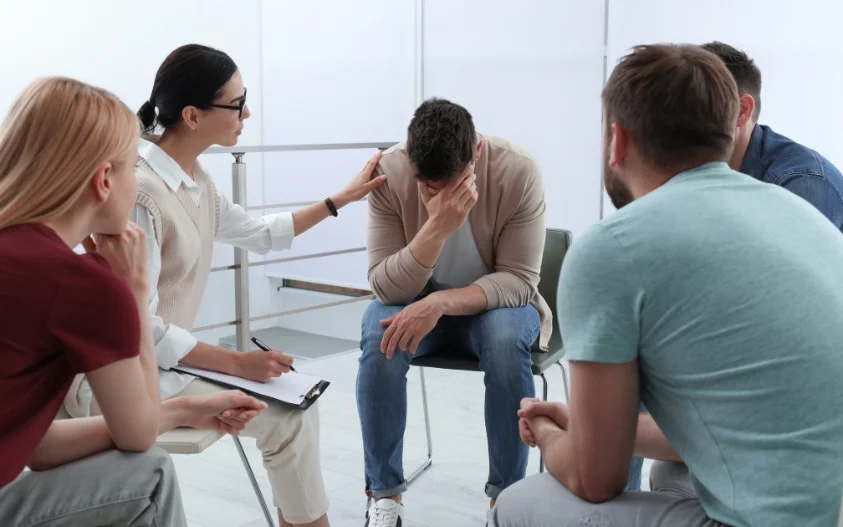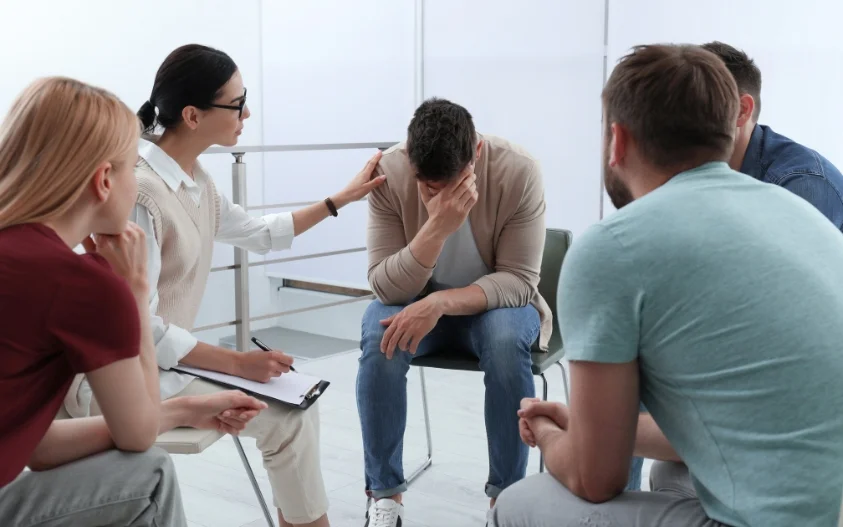24/7 Helpline:
(866) 899-221924/7 Helpline:
(866) 899-2219
Learn more about OCD Treatment centers in Imperial County
OCD Treatment in Other Counties

Other Insurance Options

Multiplan

MVP Healthcare

Optima

Self-pay options

Access to Recovery (ATR) Voucher

Absolute Total Care

Holman Group

Magellan

BlueCross

Cigna

Choice Care Network

Horizon Healthcare Service

Group Health Incorporated

Ceridian

Evernorth

Oxford

Providence

Premera

Optum

State Farm

Imperial County Behavioral Health Services – Adult Outpatient
Imperial County Behavioral Health Services - Adult Outpatient provides a wide array of services for ...

Imperial County Behavioral Health Services – Children Outpatient
Imperial County Behavioral Health Services - Children Outpatient is committed to serving children an...

Imperial County Behavioral Health Services – MHSA Programs
Imperial County Behavioral Health Services - MHSA Programs provides children and adolescents with th...







































































Quechan Indian Tribe – Alcohol Drug Abuse Prevention
Quechan Indian Tribe provides education and treatment to youth between 12-18 years of age through it...

Imperial County Behavioral Health Services – Adolescent & Adult
Imperial County Behavioral Health Services - Adolescent & Adult provides services to youth ages 12-2...

Action Rehabilitation Centers
Action Rehabilitation Centers is a private rehab located in El Centro, California. Action Rehabilita...

Sober Roads
Sober Roads is a counseling office offering substance abuse treatment including individual and group...

Turning Point Men’s Home
Turning Point Men’s Home is a private rehab located in Holtville, California. Turning Point Men’s Ho...

Imperial County Behavioral Health Services – Children Outpatient
Imperial County Behavioral Health Services - Children Outpatient is committed to serving children an...

Imperial County Behavioral Health Services – Anxiety & Depression – Brawley
Imperial County Behavioral Health Services - Anxiety & Depression provides services to individuals d...

Imperial County Behavioral Health Services – Children Outpatient
Imperial County Behavioral Health Services - Children Outpatient is committed to serving children an...

Imperial County Behavioral Health Services – FRC
Imperial County Behavioral Health Services - FRC is committed to serving children and adolescents wi...

Imperial County Behavioral Health Services – RCP Outpatient
Imperial County Behavioral Health Services - RCP Outpatient provides services to individuals diagnos...

Imperial County Behavioral Health Services – Anxiety & Depression – El Centro
Imperial County Behavioral Health Services - Anxiety & Depression provides services to individuals d...

Imperial County Behavioral Health Services – Anxiety & Depression – Calexico
Imperial County Behavioral Health Services - Anxiety & Depression provides services to individuals d...

AA – Alcoholics Anonymous
AA – Alcoholics Anonymous is a non-profit rehab located in Imperial, Missouri. AA – Alcoholics Anony...
































































































































































